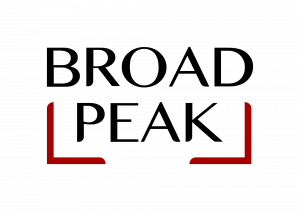Our Partner:
KfW Entwicklungsbank (the German development bank) is one of the leading promotional banks since 1948 and is committed to improving economic, social, and environmental living conditions across the globe. KfW is both an experienced bank and a development institution with financing expertise and expert knowledge of development policy. On behalf of the German Federal Government, and primarily the Federal Ministry for Economic Cooperation and Development (BMZ), it finances and supports programmes and projects that mainly involve public sector players in developing countries and emerging economies – from their conception and execution to monitoring their success. The goal is to help the German partner countries to fight poverty, maintain peace, protect both the environment and the climate, and shape globalisation in an appropriate way.
The Project:
The InsuResilience Investment Fund (IIF) was established in 2015 by KfW as a lighthouse project, under the mandate of the BMZ. The IIF aims to foster the development of local insurance markets. It accomplishes this goal by providing financing and guidance to insurance companies and entities within the insurance value chain in developing countries. These entities offer climate risk insurance solutions to their clients, particularly targeting impoverished and vulnerable households, as well as small businesses. For example, climate resilience through the advancement of parametric insurance is promoted by supporting data-driven companies specialised in that field Through both present and future investments, the IIF aspires to support up to 104 million beneficiaries of InsuResilience. Additionally, to ensure the continuous financing of innovative insurance solutions, the IIF has been open to private investors since July 2017.
Our Tasks:
Broadpeak was commissioned to conduct the ex-post impact evaluation of the fund. The primary objective of this evaluation was to assess the fund’s impact across six different OECD DAC criteria: Relevance, Coherence, Effectiveness, Efficiency, Sustainability, and Impact. A specific focus lied on the evaluation of the Technical Assistance Facility (TAF) and the Premium Support Facility (PSF), which provided temporary premium subsidies for policyholders. We analyzed portfolio-specific data and documents, such as indicators of financial resilience of end beneficiaries, KfW-internal data, and macroeconomic data to produce a comprehensive report for the German Development Ministry. Besides a thorough desk review, the evaluation included 1:1 interviews with relevant stakeholders, such as the Fund’s Board, and the Fund Manager Blue Orchard.
Our Deliverables:
We synthesized the results into a comprehensive report, which extensively details the outcomes and assessments overall and across each of the criteria. Furthermore, the report offers valuable macroeconomic context and economic insights into the fund and its portfolio companies. Several observations and conclusions were made that will be a valuable guide for the design of similar interventions in the future: (a) Climate insurance projects must be regarded as “market-building initiatives” that require a great deal of know-how and time, (b) Facilities such as the TAF and PSF can be of immense value and significantly contribute to the impact of such an intervention and (c) One of the most important means of such projects is to create visibility and this often happens after a claim through word-of-mouth and the visibility of the disbursements (i.e., showing that “it works”).





